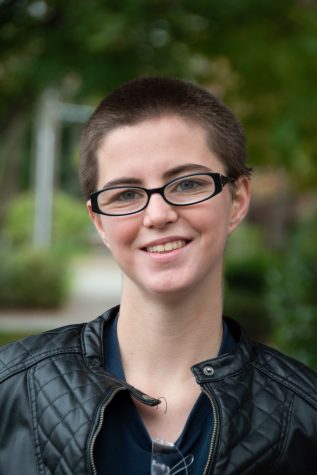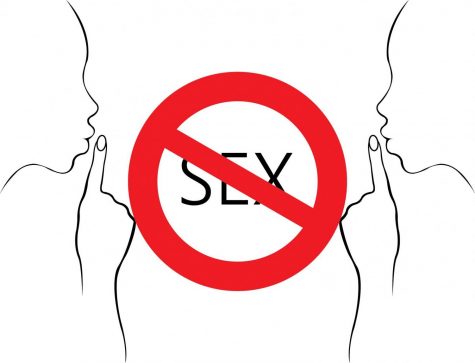Addressing the forgotten third-party
As Rinedahl lawsuit is addressed campus waits with held breaths

Crashing china, screams rising into the night, and an atmosphere filled with so much tension and emotions you could drown a whale. Everyone in the house is now involved, whether or not they chose to be. Their voice doesn’t rise but is always one person, one observer, a third-party to this conflict. This is true of every conflict. No argument happens in a vacuum, and all those people that are brought in from the sidelines are now invested in the resolution. They can get just as hurt in the middle of the battle, and that needs to be addressed as everyone heals from their wounds.
In the midst of Professor Rinedahl’s lawsuit against Seattle Pacific University and its discriminatory hiring policies against LGBT instructors looking for full-time, tenured positions, the student, faculty, and staff body has become the third-party observers of this litigation.
Upon KING 5’s story on Jan. 11 on the lawsuit and The Falcon’s own publication, “Nursing Professor sues SPU for discrimination”, students, entire schools, and campus groups were quick to respond.
The Theology Student Union met virtually over Zoom to express and address the complexity of the issues from a theological standpoint. Students from the School of Nursing wrote and recorded a reading of the Open Letter to Administration through The Falcon. The student body, with the backing and support of countless staff members and professors who have shared their perspectives and allowed for conversations in their classes, has asked for answers. They are demanding a response.
Beyond what most students can see, faculty and staff have gathered and continue to gather to discuss and communicate with the Administration on what moving forward looks like. Dr. Carlene Brown and Gina Whitehouse, the Faculty Chair for the Faculty Senate and Staff Council President, respectively, have been on the frontlines of these discussions.
As a faculty member who has been at SPU for sixteen years, Brown was encouraged by the faculty’s response to the lawsuit. “The communication channels that faculty have were being used, there was a lot of discussion about human sexuality and diversity….in all my years here, I don’t remember a time when conversations like this were so much activity,” Brown exclaimed.
The biggest and most important development was the faculty-wide and staff-wide surveys that were sent out to gather a clearer perspective on what faculty and staff as a whole really felt in the midst of Rinedahl’s suit. “There was a tremendous response,” Brown said.
But Dr. Brown also gives this reminder, “It’s the Board of Trustees that sets policies.”
She, however, was grateful for all that Administration has done to facilitate conversations. “The Faculty Senate held a meeting a couple of weeks ago and Dr. Martin attended by invitation.” Brown went on to say, “Dr. Martin asked if he could take the data from the surveys to present to the Board of Trustees; I’m not on the Board, so I wouldn’t be able to speak on what effect it will have, but [Dr. Martin] didn’t have to do that.”
Whitehouse, who has been a staff member for two and a half years, shared that staff members and groups quickly decided that they knew they had a space to speak on these issues as well.
“We originally had conversations on how to get the ball rolling on this. We recognized that this is something that affects everyone,” said Whitehouse as she and fellow staff members were faced with the announcement of the lawsuit. With discussions happening on both a faculty and staff level, there was a refreshed solidarity between all of the campus’s leaders who serve at SPU.
“I was really excited to see staff able to speak in these meetings,” declared Whitehouse. As Staff Council President it is her job to find ways of connecting and building relationships between faculty and staff bodies, so to see such openness for every voice to be heard has made an unbelievable difference.
Conflict is modeled first in our families and that is how we learn to handle disagreements, but moments like this have the potential to showcase how Christian institutions and the boards that lead them to handle relationships between their model of learning and their business practices.
For me, I got a front seat to the tantrums of parents and children trying to wrestle the other into submission. I learned that arguments lead to dying relationships, hurt, and destruction. I want to see my university show that powers can be held accountable and it’s worth fighting for those who can’t win on their own.
Instead of reinforcing the idea that conflict management is great in theory, but unrealistic when minorities face majorities in conflict, the Board has the opportunity to practice what it preaches. But, I warn you, Board of Trustees, as a perpetual third-party participant in family fights, I continued to hold the hurts and damages that were collected and this campus will do the same if this university.
SPU Administration did release a responding press release of their own on Jan. 14 and has posted their updated release on the website. This statement does address Rinedahl directly, thanks to him for “his work with our students and for his service to Seattle Pacific University,” and comments on the complexity of the issue within the global church.
However, it is a far cry from the response that students, faculty, and staff were hoping for as the campus enters the fifth week of the quarter. Because this campus has been trained, taught, and encouraged to review inequalities and inconsistencies critically, this silence has not stopped this community from calling the Board to action.
We have been asked to reason and think in every class we attend. This university has hired instructors who can fulfill the call to love every student no matter what faith system they devote themselves to, no matter their ethnicity, and no matter their sexual orientation.
We ask that the Board do the same. You have molded and shaped this community to engage cultures and situations like this by holding on-campus conversations—in and out of the classroom—about diversity, inequalities, and disparities. So, Administration, it’s your turn to learn from your own curriculum.
As delicate and personal as this lawsuit is, to leave a third-party campus unanswered is dangerous. They are left hiding in the dark, replaying words shouted in desperation and frustration in their head, wondering what that means for them. If this university is okay with limiting the job opportunities because of someone’s sexuality, what else are they willing to limit?
The students, faculty, and staff members don’t need to see the nitty-gritty details of this conflict. There are some things that belong behind closed doors between those involved and their mediators. No one is asking to join this conflict as active participants, but there are ways to acknowledge everyone in respect to their involvement.
There are ways to address the campus without admitting guilt, weaponizing the student body, or ignoring the bystanders and watchers.
My brother and my parents came to an unspoken understanding of what can be talked about and what is off-limits. They have readjusted their boundaries and have found better ways to work through the residual hurt and pain of those younger days, but I still carry the scars.
So, no matter how this litigation process is resolved and addressed, if the third-party to this conflict is neglected, then the battle is only half over. This campus understands the complexity of the situation and the discretion and tact needed in moments like this. Be the example for us to follow in years to come and show us how to address the forgotten third.
Represent this school and its campus amidst the messiness of a broken and fallen world, show the world the type of people that this university communes with, like the faculty, staff, and Administration is asking you to.
“This is a significant time of reflection and clarity. This is a unique opportunity for a university” stated Brown.
“When it boils down to it, the work that we do is for you. The conversations that we have and the decisions that we make are for you,” declares Whitehouse.
Angela is a junior studying Reconciliation
Your donation will support the student journalists of The Falcon. Your contribution will allow us to purchase equipment and cover our annual website hosting costs.






















































































